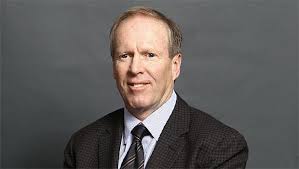By Paul Nicholson
January 10 – Tomorrow the National Soccer Coaches Association of America (NSCAA) opens their annual conference in Los Angeles, the largest soccer convention in the world and the largest coaching convention of any sport worldwide. More than 20,000 participants are expected to attend, an increasing number of them international visitors.
For the US the convention comes at an interesting time in the coaching of the game. The US is undergoing a revamp of its youth structure with the move towards more small sided games – a move that is re-organising teams, age-groups and a funding economic that supports an army of coaches.
Academies are being introduced for the first time, taking over from their old Olympic development programmes. And on the men’s national stage outspoken German coach Jurgen Klinsmann has been replaced by Bruce Arena, who has had the job before, prompting some questions of whether this is a Back to the Future move. The US is currently locked in a precarious battle to ensure qualification for the 2018 World Cup, but looks far more certain of securing the hosting of the 2026 World Cup. Certainly these are potentially changing and challenging times in the country that has become a global player in world football, but not so much on the field of play.
Kevin Payne (pictured), CEO of US Club Soccer, a member organisation that supports US clubs via youth and adult registration, competition platforms and various educational and training programmes, believes that a change is taking place in the US and that it is much needed but that it will take time.
“In the US we don’t have a methodology like in France or Belgium. Our tradition of youth soccer is to win games. We are not focussed on developing players. That mindset needs to change. We need to get people to understand different methodologies,” said Payne.
“We need to change we do things and steps have been taken to do that – an example is the development of the Academy system where we are ensuring we are creating the right framework for player development. We have more players training at a higher level, but the challenge is what are we teaching them,” he continued.
“Over the last six years we have had the worst set of international results at every age group level. Our record has really been poor since the middle 80s.”
US Club Soccer has taken steps to speed up this process and has brought Spain’s La Liga in to help with bring a change in the philosophy.
“We have introduced a more sophisticated licensing system, it is very long term. It will supplement what US Soccer is doing,” said Payne.
“Now we are progressing to a methodology of how to teach. Our players are different in California compared to New Jersey. They are culturally different. We need to encourage and develop consistency. How do we develop our own way to develop players consistently. We have seen other countries change the way the team plays and this can lead to a period of dominance, like with France and Belgium. They developed a whole new generation of talented players and a style of play…We (in the US) have to do a better job and have to agree there are certain ways and better ways to teach our younger players.
“The challenge is pulling a big, disparate country together. We need more of a communications effort. The issue is not so much the technical element. The difficult part is convincing people that this is how it is done.”
Payne says the relationship with La Liga “is going very very well. We have had 850 coaches through the course and are starting another set of courses. People who have taken level 3 are moving on to level 2. The courses are all led by La Liga.”
But how fast can a change of thinking be communicated? “It is way to soon to measure the effect they (the courses) are having. In our country we have too often looked for results to see if there is something we can do to quickly produce results. This has not worked. It will take several years to see the real difference.
Fundamental to the change could end being a change in the eco-structure of coaching and club football in the US that bumps head-on with age-old issues of parental involvement. In the US, perhaps more than anywhere else in the world, parents like to see their kids in teams that are winning all the time. And because they are paying for them to play they feel they have a say in the process.
This is the cultural element that needs to challenged but to do so could potentially knock over an infrastructure that supports literally thousands of clubs and coaches across the country.
Turkeys don’t vote for Thanksgiving. Somehow they are going to have to gently engineer this kind of sea-change in attitude if the US is going to find a unified route to a much-desired common goal.
Contact the writer of this story at moc.l1751296094labto1751296094ofdlr1751296094owedi1751296094sni@n1751296094osloh1751296094cin.l1751296094uap1751296094

